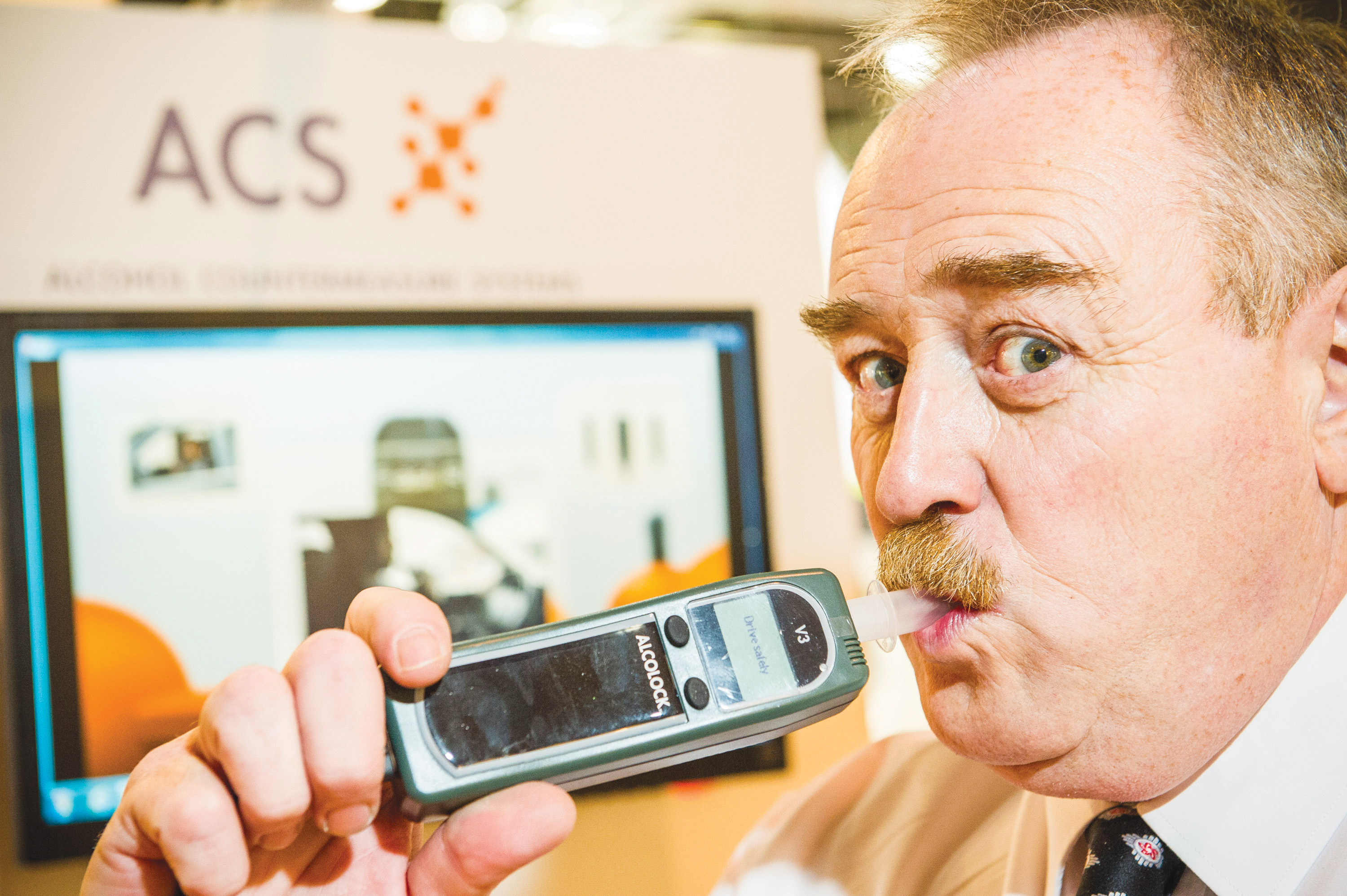
Richard W Thomas using the Alcolock V3 device
Making its ITS World Congress debut is Canadian company ACS – 6777 Alcohol Countermeasure Systems – with its Alcolock V3 alcohol ignition interlock.
The device has been around since 2008 and requires drivers to breathe into the device before setting off on a journey. If the driver’s breath contains alcohol, the engine ignition system will not work. (Residual amounts of alcohol, such as those found in some mouthwashes, are allowable.)
It has been mandatory for Alcolock to be fitted to public vehicles in Sweden such as buses and taxis and it will become mandatory in school buses in France next year. It is also used in several marques of HGV. To prevent the system being intrusive in vehicles that stop frequently throughout their daily use, the device can be programmed to operate as few or as many times as the operator wishes.
The device does have an emergency override facility, but if the driver uses it, the event is automatically transmitted to the vehicle’s owner or operator.
Although ACS has attended bus and car shows in the past, this is the first time it has attended ITS; its attendance came about after the Canadian embassy in Vienna asked ACS if it was aware of the World Congress.
Additionally, the Austrian transport ministry has asked ACS to compete for a trial of 100 alcohol ignition interlocks in the country.
According to Richard Thomas, the company’s international affairs director, interest has been high, with promotional literature rapidly disappearing off the company’s stand on the opening morning of the show.
The device has been around since 2008 and requires drivers to breathe into the device before setting off on a journey. If the driver’s breath contains alcohol, the engine ignition system will not work. (Residual amounts of alcohol, such as those found in some mouthwashes, are allowable.)
It has been mandatory for Alcolock to be fitted to public vehicles in Sweden such as buses and taxis and it will become mandatory in school buses in France next year. It is also used in several marques of HGV. To prevent the system being intrusive in vehicles that stop frequently throughout their daily use, the device can be programmed to operate as few or as many times as the operator wishes.
The device does have an emergency override facility, but if the driver uses it, the event is automatically transmitted to the vehicle’s owner or operator.
Although ACS has attended bus and car shows in the past, this is the first time it has attended ITS; its attendance came about after the Canadian embassy in Vienna asked ACS if it was aware of the World Congress.
Additionally, the Austrian transport ministry has asked ACS to compete for a trial of 100 alcohol ignition interlocks in the country.
According to Richard Thomas, the company’s international affairs director, interest has been high, with promotional literature rapidly disappearing off the company’s stand on the opening morning of the show.
<%$Linker:





